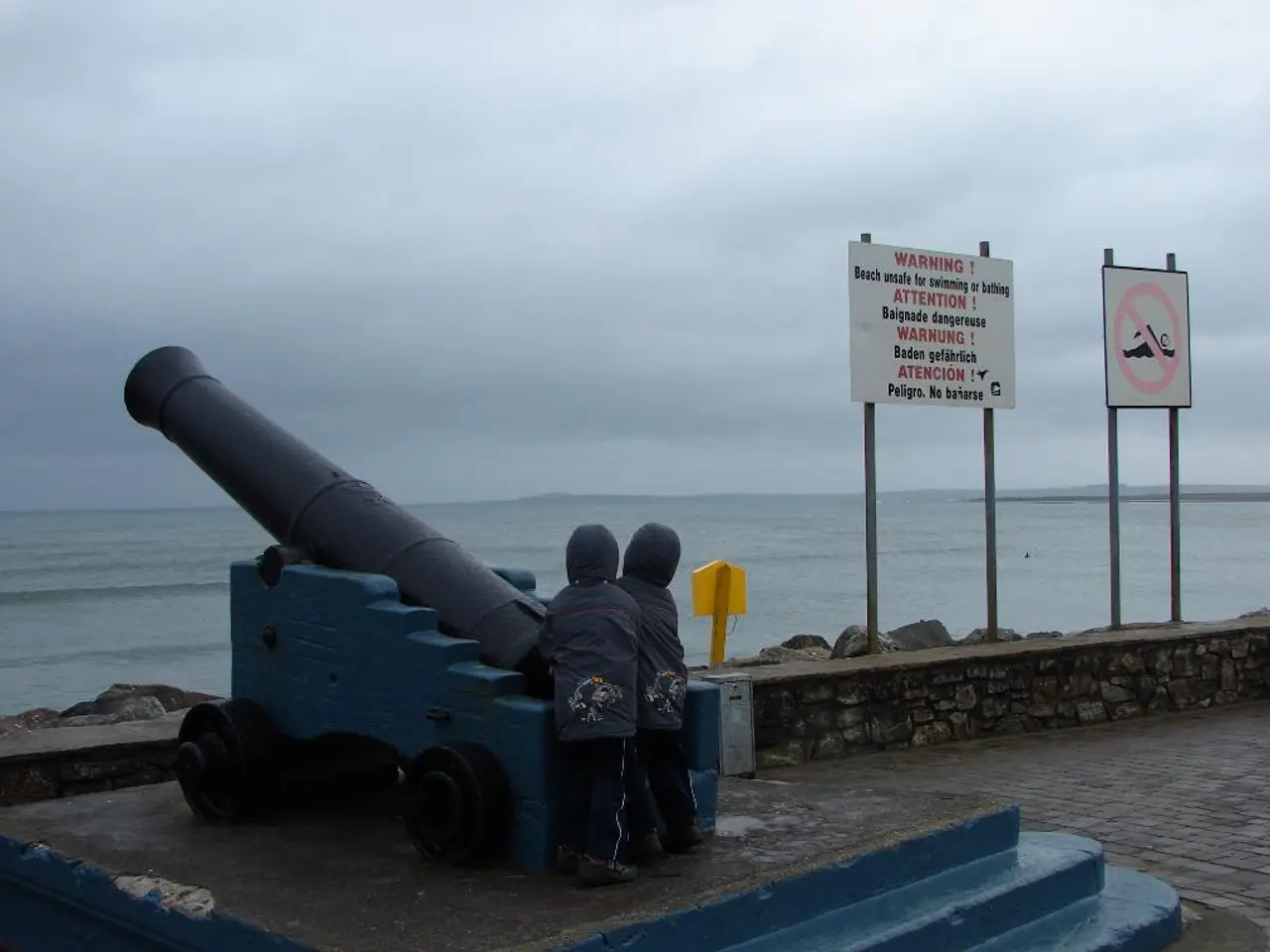Judge's Criticism Might Influence Trump's Strategy for Deploying Troops in Urban Democratic Regions
In a significant ruling, US District Judge Charles Breyer has declared the use of the National Guard and Marines in Los Angeles illegal, marking a setback for President Donald Trump's plans to deploy military forces for law enforcement purposes outside of protecting federal buildings and people.
The ruling, which applies only to California, has far-reaching implications for any potential deployment of troops by Trump in other cities, such as Chicago. Breyer's decision provides a framework for such deployments, stating that the administration violated the Posse Comitatus Act by using troops for law enforcement functions in Los Angeles.
The Posse Comitatus Act bars the use of the military "to execute the laws," except when expressly authorized by the Constitution or an Act of Congress. Breyer's ruling significantly limits what those troops are allowed to do, prohibiting activities like arrests, apprehensions, searches, and crowd control.
Elizabeth Goitein, a senior director of the liberal-leaning Brennan Center's Liberty and National Security Program, called Breyer's ruling a "place to start" that could "certainly inform how other courts look at these questions." Emory University law professor Mark P. Nevitt concurred, stating that Breyer's ruling is a setback for Trump's use of the military for law enforcement operations outside of protecting federal buildings and people.
Trump has often compared what he intends to do in Chicago to what he has done in DC. However, deploying troops in Chicago would be the first time he would use the military for broadscale, domestic law enforcement outside of the nation's capital. Syracuse University law professor emeritus William C. Banks said the ruling "provides the frame for any other places Trump might want to deploy troops."
President Trump is considering deploying the military on US soil in extraordinary ways, potentially in Chicago. The administration is preparing to conduct a major immigration enforcement operation in Chicago as soon as this week, potentially involving the National Guard in a peacekeeper capacity. Trump has repeatedly indicated that sending troops to Chicago is about law enforcement, and White House officials have made clear that these immigration plans are separate from that.
Despite the ruling, Trump has not ruled out the possibility of deploying troops in Chicago. In a statement, he said, "We're going in," but did not specify when. Breyer's ruling repeatedly points to Trump's designs on possibly expanding his use of troops to other cities like Chicago, apparently anticipating what could lie ahead.
The administration has denied engaging in direct law enforcement operations in Los Angeles, but has allowed troops to conduct less-direct forms of law enforcement, such as security patrols, traffic control, and riot control. Breyer's ruling suggests that even these activities could be subject to legal challenge.
As the debate over the use of military forces for law enforcement continues, Breyer's ruling in California offers a potential roadmap for future court decisions. The ruling could provide a critical check on the executive branch's powers, ensuring that the use of the military for domestic law enforcement is limited and carefully regulated.
Read also:
- Lu Shiow-yen's Challenging Position as Chair of the Chinese Nationalist Party (KMT) Under Scrutiny in Donovan's Analysis
- Fun-Filled Mother's Day Activities and Educational Insights
- Baltimore Card Counter Files 3 Million Dollar Lawsuit Against Casino for Unlawful Detention Over Horseshoe Casino Allegations
- House Representation Originally Meant to Be Close to the People; Redistricting Risks Undermining This Connection








